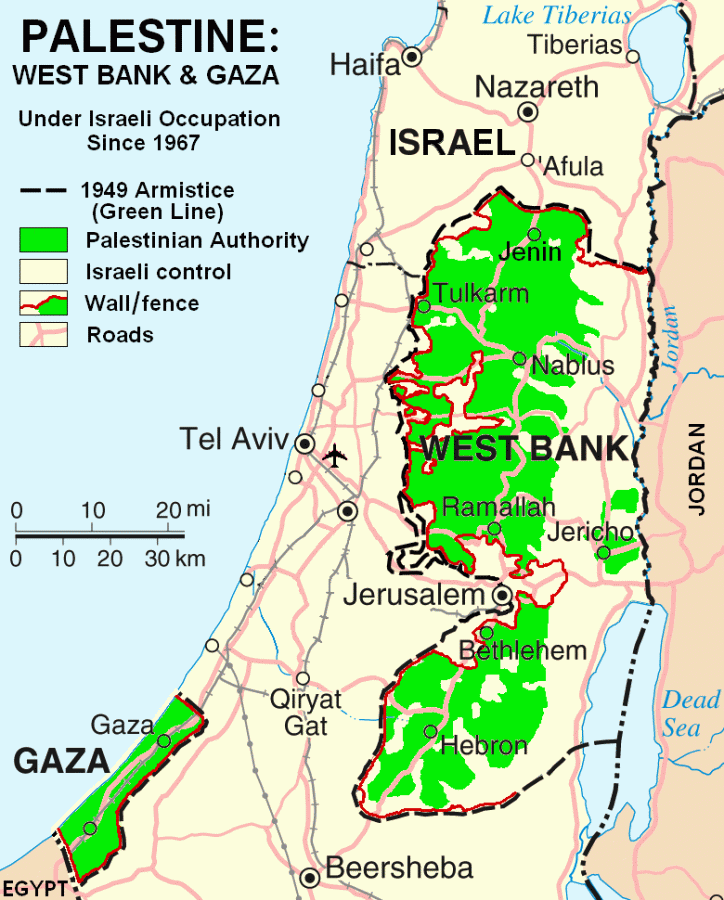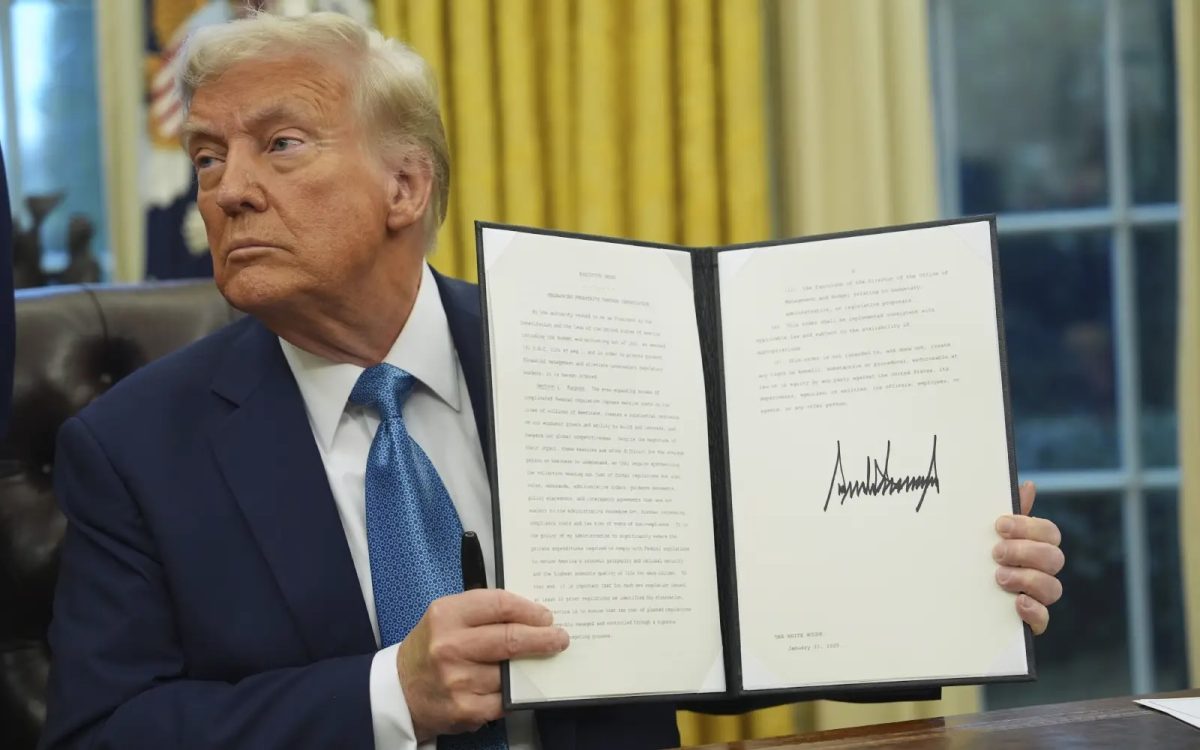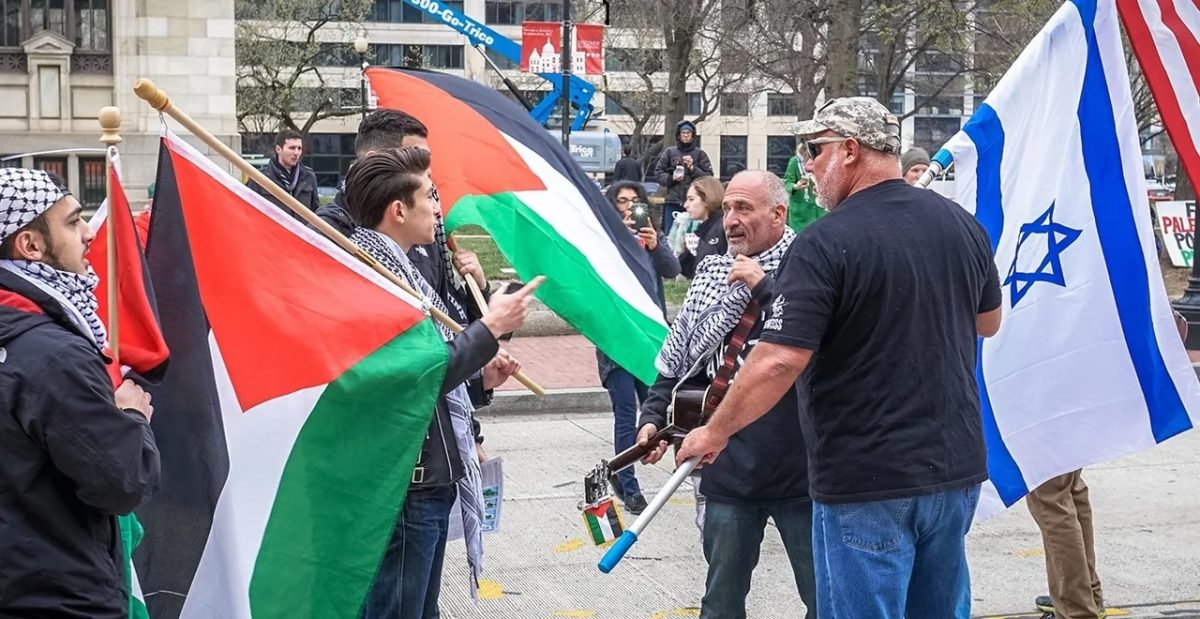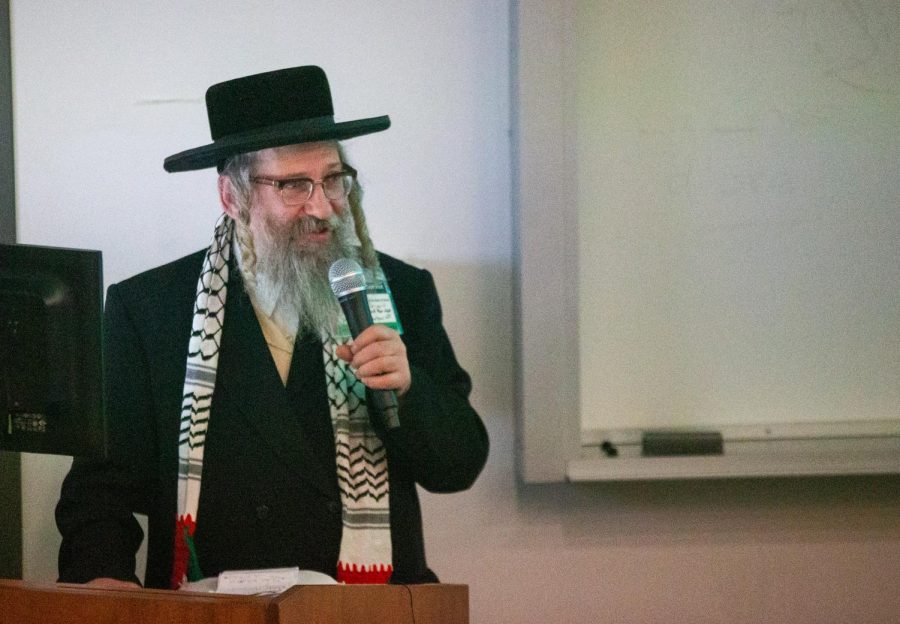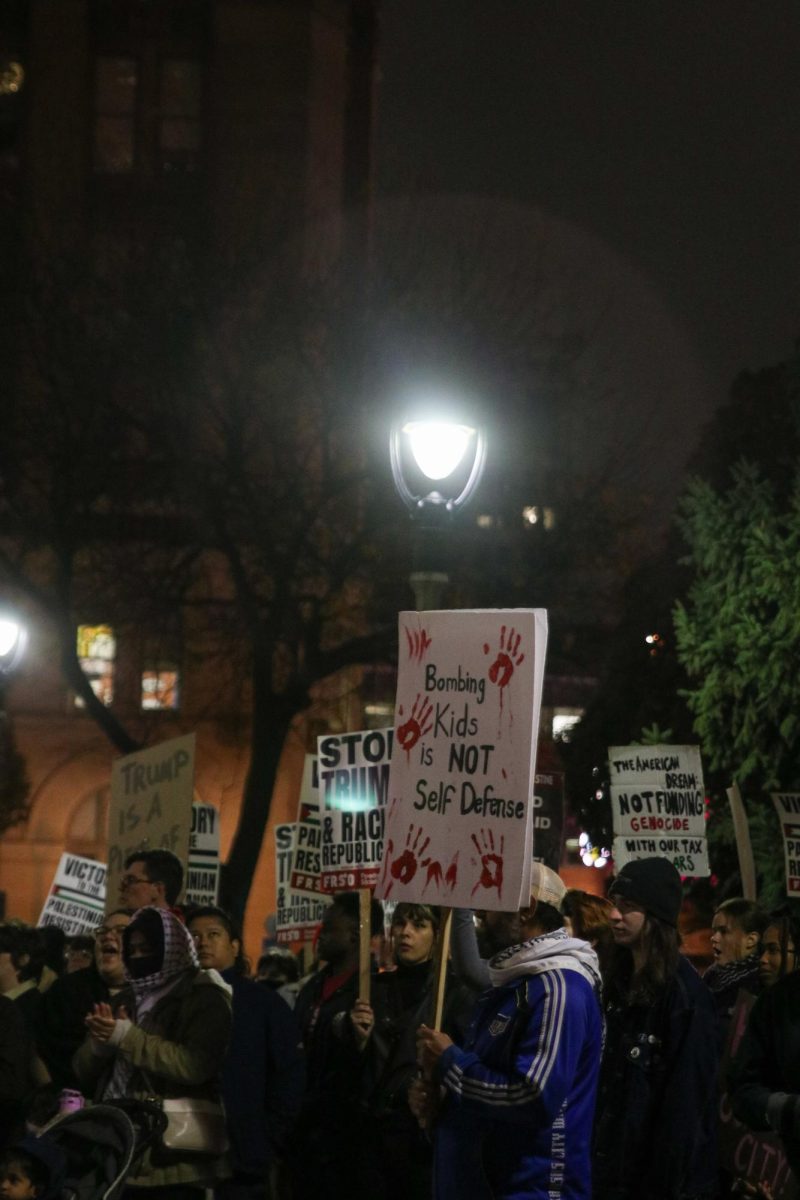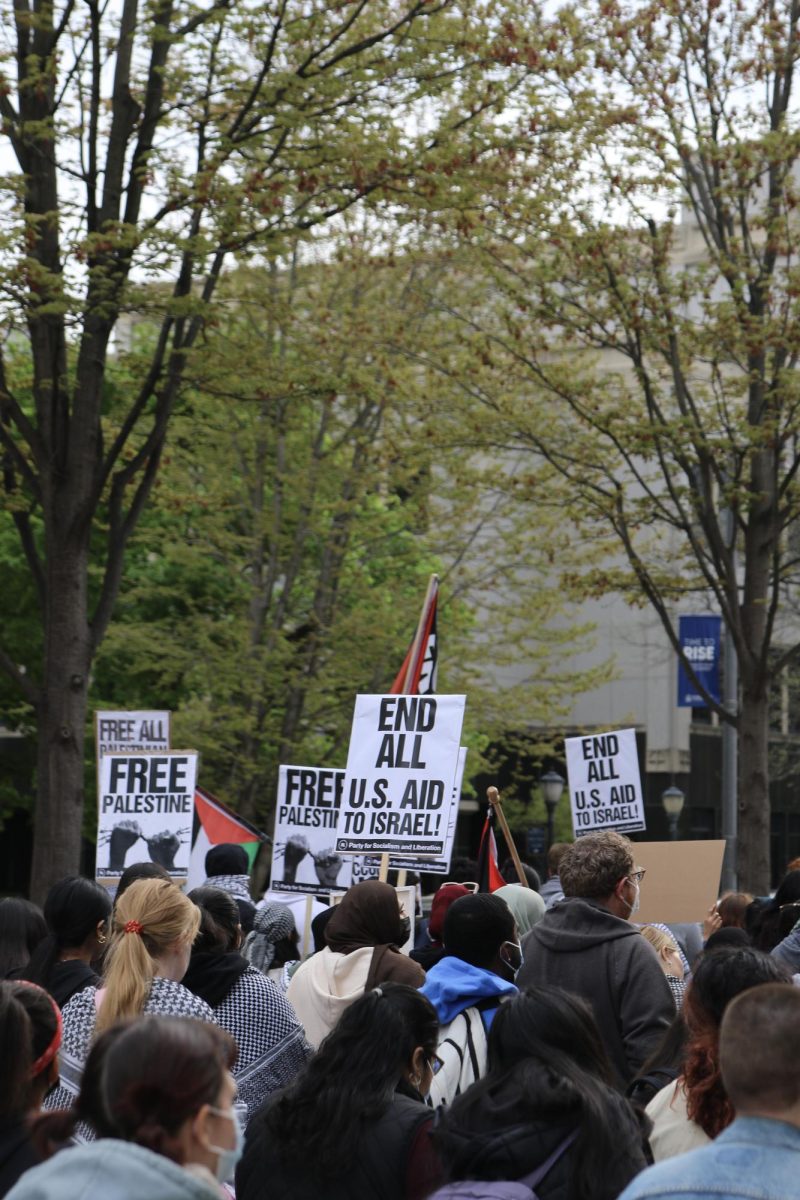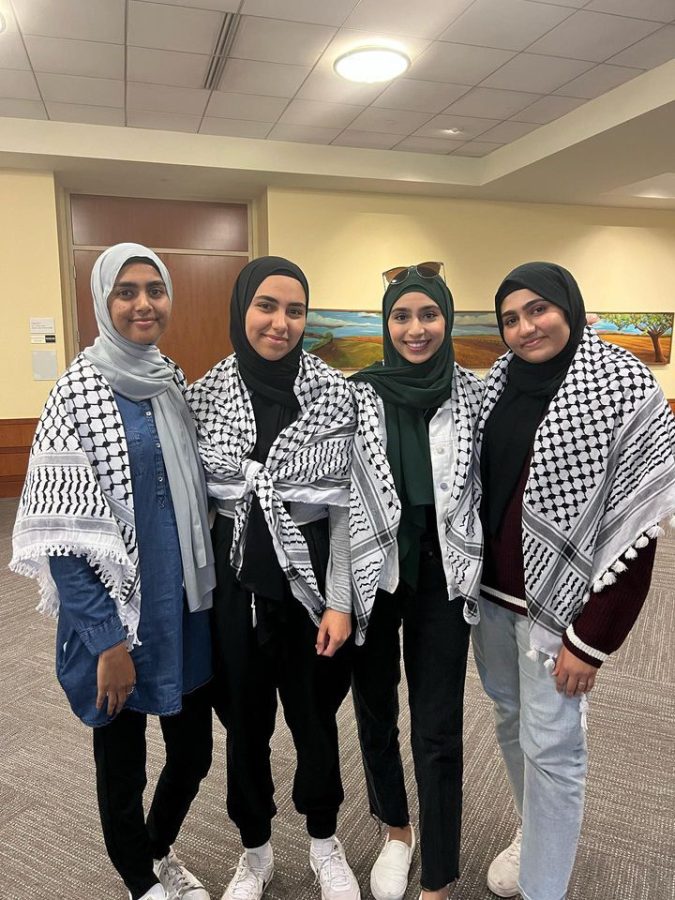Israel is a recognizable nation east of the Mediterranean Sea, but not everyone sees it that way.
Palestinians, who came from the land that Israel now controls, want back some or all of the land to form an established state. The question is who has the right to the land, and this is the cause for the infamous conflicts between these two countries.
Since the early twentieth century, Israel and Palestine have fought wars over this issue, and the boundaries recognized today are a culmination of the results of these wars. These disputes began because Arabs saw the influx of Jews into Palestine as an attempt of British colonialism, which no country has really ever been fond of.
Israel gained control over the West Bank and Gaza Strip, which is where the largest populations of Palestinians reside. The West Bank is under Israeli occupation, which means Israeli troops place restrictions on the people of Palestine through their activities.
Occupation has resulted in vile, malicious actions by the Israelis upon the innocent Palestinian civilians. They are constantly under military interference and cannot control their own flow of food and medicine into Gaza. It does not stop there.
Not only do the Israelis restrict Palestinians’ food and medicine supply, but they have access to the water supply and supply it to majority Israeli areas. There are often water shortages for Palestinians in the West Bank. The people of Bethlehem have reported going forty days without water, let alone it being clean.
Palestinians are denied hospital access, and even if they were not, Israel has bombed many of the hospitals available to them. Israel has not even allowed the Palestinian women diagnosed with breast cancer to travel to Israeli hospitals to receive treatment.
Palestinians are also denied citizenship, and, as such, the right to vote. These people technically do not belong to any state because of this, and do not have any voice when it comes to national elections and policies. These are just a handful of problems that Palestinians face due to the inhumane actions of Israeli forces.
There have been two possible solutions offered for the Palestine and Israel conflict. These are either a two-state or one-state plan. The two-state plan would ensure Palestine as an independent state in Gaza and the West Bank and leave the rest to Israel. Based off the name of the plan, a one-state solution would include one piece of land owned by Israel or Palestine.
When the United Nations attempted to create a two-state solution, they gave 650,000 of the Jews much more land than the Palestinians who were twice the size of the Jews in population. Now, Israel owns 77 percent of the land leaving Palestinians with no real livable state.
This conflict has created 7 million Palestinian refugees due to the Israeli efforts to ethnically cleanse the Arabs from the land. These seven million lives just demand the right to their home back.
There was an Israeli poll conducted by the Hebrew University that discovered that 63 percent of Israelis support a two-state plan. A survey asking the same question was sent out to Palestinians by the Palestinian Center for Policy and Survey Research, and 53 percent of respondents said they would back a two-state solution. The two-state solution seems like the only viable option to make most of the people involved content. Both Israelis and Palestinians need to run their countries differently, but the process of creating a fair solution is what has taken so long.
Israel refuses to stop all security presence in Palestinian land which is not a completely logical demand because no people want their state occupied by brutal army forces. The two-state negotiations proposed to the countries must include logical provisions and resources, more than just land, for the Palestinian people. The Palestinian National Authority visualizes the establishment of the state of Palestine to include part of the West Bank, the Gaza Strip and East Jerusalem and live in peace with Israel under a democratic government.
A good amount of people are unaware of, or apathetic to, the current situation between Palestine and Israel. Though this may seem like a daunting discussion with countless moving parts, the public cannot be afraid to approach the topic. The conversation must happen because millions of Palestinian lives are being controlled by the hands of the Israeli. Millions of lives are at risk if a sustainable, fair solution is not introduced soon.


